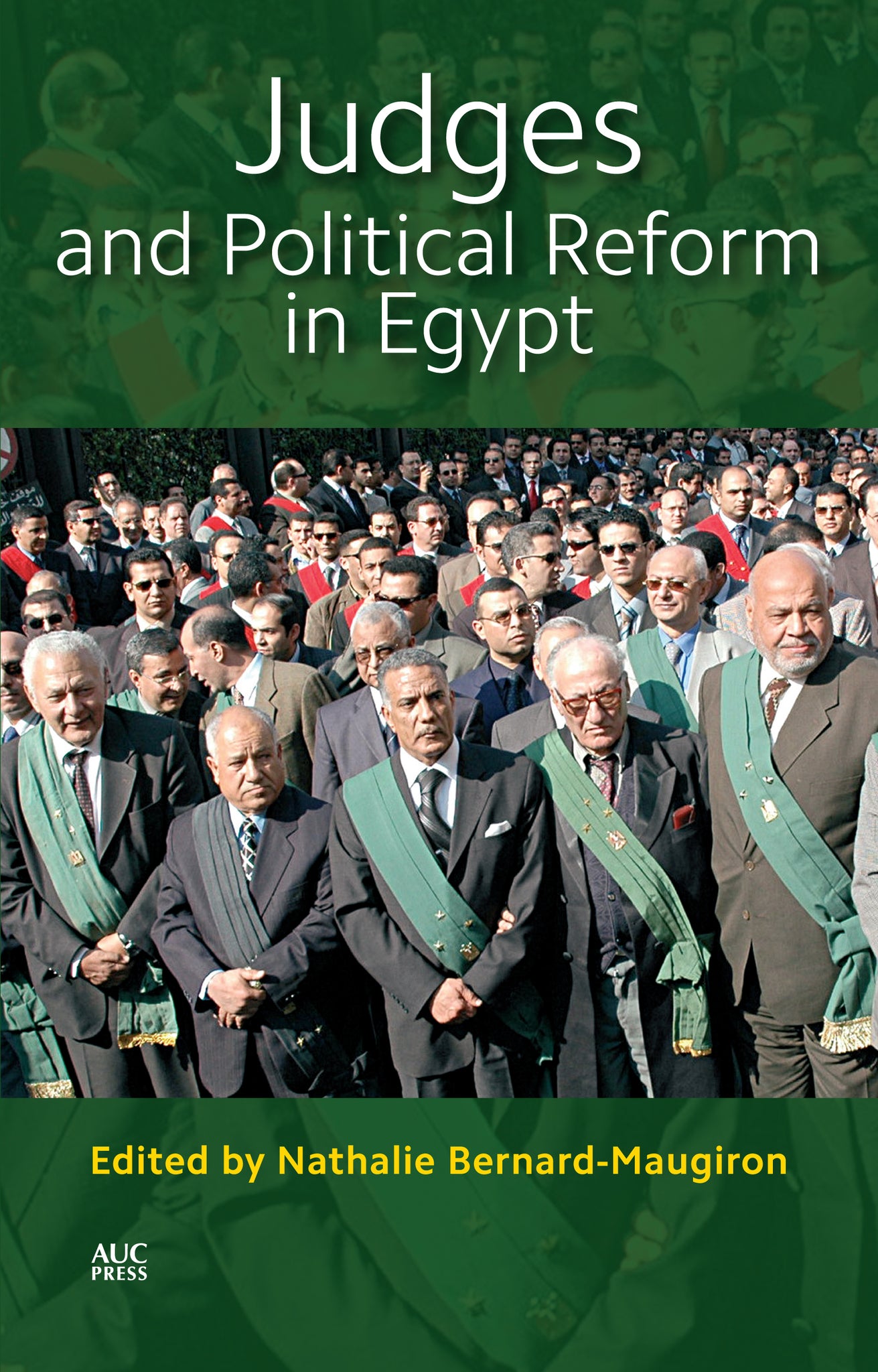We're sorry. An error has occurred
Please cancel or retry.
Judges and Political Reform in Egypt

Some error occured while loading the Quick View. Please close the Quick View and try reloading the page.
Couldn't load pickup availability
- Format:
-
01 June 2015

If justice in the Arab world is often marked by a lack of autonomy of the judiciary toward the executive power, one of the characteristic features of the Egyptian judiciary lies in its strength and activism in the defense of democratic values. Judges have been struggling for years to enhance their independence from the executive power and exercise full supervision of the electoral process to achieve transparent elections.
Recent years have seen growing tensions in Egypt between the judiciary and the executive authority. In order to gain concessions, judges went as far as to threaten to boycott the supervision of the presidential and legislative elections in the fall of 2005 and to organize sit-ins in the streets. The struggle between the two powers was in full swing in the spring of 2006, when a conference convened in Cairo in early April on the theme of the role of judges in the process of political reform in Egypt and the Arab world.
The conference was organized by the Cairo Institute for Human Rights Studies (CIHRS) in cooperation with the Institut de Recherche pour le Développement (IRD). This book is a collection of papers from the conference dealing with Egypt. They allow a better understanding of the role judges are playing in the process of democratic reform in Egypt as well as the limits of their struggle.
Contributors: Nabil Abd al-Fattah, Ahmad Abd al-Hafiz, Maher Abu al-Einein, Hafez Abu Saada, Hisham Al-Bastawisi, Nathalie Bernard-Maugiron, Negad Al-Bora’i, Nathan Brown, Mustapha Kamel al-Sayyed, Abdallah Khalil, Mahmud Al-Khudayri, Isabelle Lendrevie, Tamir Moustafa, Mohamed Al-Sayed Said, Atef Shahat Said, Younis Sherif


Note on the Contributors
Acknowledgments
Preface
Introduction
Nathalie Bernard-Maugiron
1. A Political Analysis of the Egyptian Judges’ Revolt
Mohamed Sayed Said
The Independence of the Judiciary: Past and Present
2. The Development of Relations between the Mixed Courts
and the Executive Authority in Egypt (1875–1904)
Isabelle Lendrevie-Tournan
3. The Law on Judicial Authority and Judicial Independence
Mahmud al-Khudayri
4. The General Prosecutor between the Judicial and Executive Authorities
Abdallah Khalil
Pushing the Judiciary into Politics
5. The Political Role of the Egyptian Judiciary
Nabil Abdel Fattah
6. The Political Role of the Supreme Constitutional Court: Between Principles and Practice
Tamir Moustafa
7. The Role of the Judges’ Club in Enhancing the Independence of the Judiciary and Spurring Political Reform
Atef Shahat Said
8. Reining in the Executive: What Can the Judiciary Do?
Nathan J. Brown
9. Judges and Elections: The Politicization of the Judges’ Discourse 151
Sherif Younes
The Crisis of the Efficiency of the Judiciary
10. Exceptional Courts and the Natural Judge
Hafez Abu Seada
11. Judges and Acts of Sovereignty
Mohamed Maher Abouelenen
12. The Government’s Non-execution of Judicial Decisions
Negad Mohamed El-Borai
Civil Society and the Judiciary
13. Egyptian Parties and Syndicates vis-à-vis Judicial Decisions 213
Ahmed Abd El-Hafeez
14. The Judicial Authority and Civil Society
Mustapha Kamel al-Sayyed
15. The Relationship between Judges and Human Rights Organizations during the 2005 Elections and the Referendum
Nathalie Bernard-Maugiron
Conclusion
16. The Independence of the Judiciary as a Democratic Construct
Hesham El-Bastawissy
Appendix: Draft Constituent Declaration of the Union of Arab Judges
Notes



